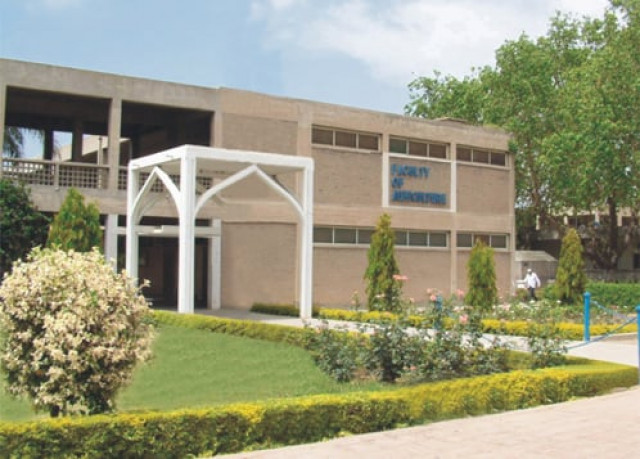Food security: ‘Bio-char vital to enhance soil fertility’
Climate change and agricultural productivity discussed at workshop.

Dr Simon Shackley from the University of Edinburgh, UK, said the use of bio-char must be promoted by the agriculture sector to mitigate the effects of greenhouse gases. PHOTO: UAF.EDU.PK
The declining soil fertility can be enhanced with bio-char that improves nutrition and the soil’s water-retention capacity, speakers at the inaugural session of an international workshop on Agronomics and Socio-Economic Policy Representation at the University of Agriculture Faisalabad (UAF) said on Monday. It was organised by the university’s Department of Agronomy and the British Council.
Dr Simon Shackley from the University of Edinburgh, UK, said the use of bio-char must be promoted by the agriculture sector to mitigate the effects of greenhouse gases.
Dr Manzoor Thakkar, a progressive farmer, said it was important to take steps to overcome deforestation, which was aggravating climate change. He said bio-char would help increase productivity.
He said increasing pollution and climate change were areas of concerns that needed collaborative effort. “Pakistan’s population is growing fast and it is vitally important to increase agricultural productivity to ensure food security,” Thakkar said.
Department of Agronomy Chairman Dr Ehsanullah said climate change was playing havoc with people’s lives. He was of the view that greenhouse gases and carbon dioxide emissions were causing glaciers to melt at a fast rate and also affecting agriculture. He said the seminar aimed to raise awareness among the masses about bio-char so its use could be promoted in the country.
Other experts who spoke on the occasion included Dr Khalid Bashir and Dr Muhammad Shahid.
Dr Khalid Bashir said food insecurity was affecting 58 per cent of the population.
He said the issue could be tackled by promoting reliance on the latest technology.
Dr Muhammad Shahid informed the participants about the bio-medical aspects of bio-char.
Dr Fahad Rasul said it was a matter of concern that organic matter in soil was at only one percent.
He said that the country was exposed to climate changes, and if tangible steps were not taken, food insecurity would increase.
Published in The Express Tribune, May 13th, 2014.



















COMMENTS
Comments are moderated and generally will be posted if they are on-topic and not abusive.
For more information, please see our Comments FAQ